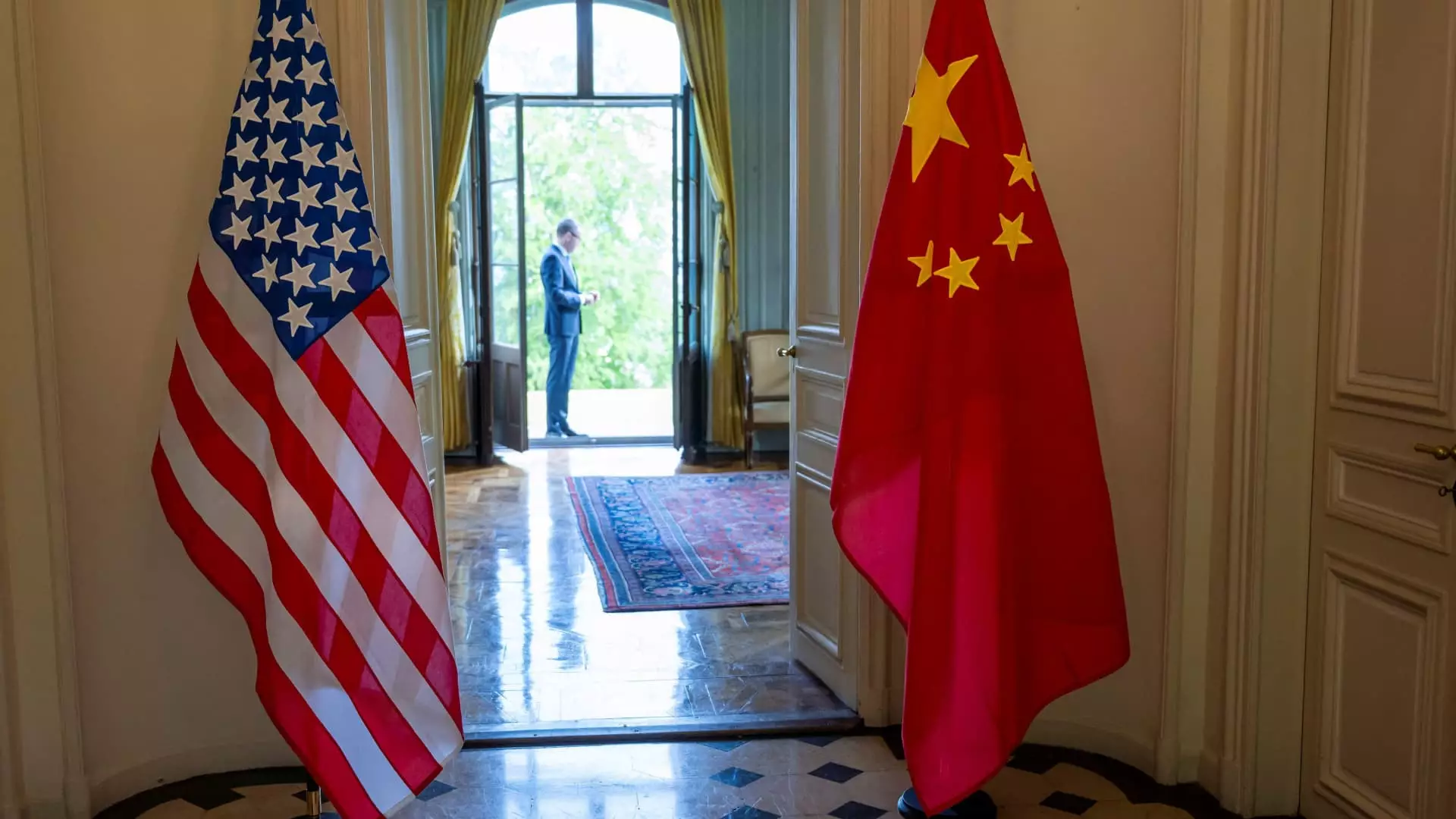The ongoing trade negotiations between the United States and China have reached a concerning standstill, with no clear path forward for either nation. The insights from Treasury Secretary Scott Bessent reveal a sobering reality: without direct communication between the two leaders, meaningful progress is unlikely. While Bessent expresses optimism for future talks, his comments underscored the gravity of the situation—it’s not just a matter of policy but a clash of two titanic economies whose decisions ripple across the globe. The diplomatic chess game now seems more arduous than ever, suggesting that while both nations may be seeking resolution, they are also deeply entrenched in their positions.
Escalation and Agreements
The recent history of U.S.-China relations has been a tumultuous mixture of escalating tensions and reluctant agreements. After significant tariff increases that rattled global markets, a temporary truce was brokered in Switzerland in May, leading to a rollback of those tariffs for 90 days. While such agreements may provide temporary relief, they are mere band-aids on a deeply infected wound. The underlying issues, ranging from technological competition to national security concerns, continue to fester. The faint promise of open dialogue in weeks to come seems overshadowed by the stark reality that both sides continue to engage in harsh measures against one another—such as tech restrictions from the U.S. and China’s reluctance to ease export controls on essential resources.
Relations Between Leaders
When it comes to high-stakes negotiations, personal relationships matter immensely. The rapport between President Trump and President Xi Jinping might hold the key to unlocking further cooperation. Both leaders previously enjoyed a cordial relationship, which has now seemingly soured with the complexities of trade policies. Analysts suggest that Xi may be hesitant to engage with Trump unless there’s certainty in the U.S. stance—a rather precarious position given the unpredictability in Trump’s approach to foreign policy. Any future communication is fraught with the potential for misinterpretation or, worse, unexpected surprises. This precarious balance illuminates one harsh reality: for productive dialogue to occur, both nations need to work towards rebuilding trust, not merely relying on high-level discussions.
Communications and Miscommunications
The channels of communication between the U.S. and China have shown signs of life, with officials exchanging sentiments and statements. However, the rhetoric coming from both sides exposes a dangerous disconnect. The Chinese Ministry of Commerce’s response to U.S. restrictions on chip exports, calling for immediate correction, reveals a level of frustration that could undermine future negotiations. Instead of bridging gaps, these public statements may risk further isolating the two sides. China’s lack of direct engagement regarding rare earth export controls is particularly troubling. The reluctance to budge on these critical resources suggests a deeper game at play—one that intertwines economic strategies with national pride and geopolitical power dynamics.
A Bolt from the Blue: Visa Revocations
In a surprising development, the Trump administration’s decision to revoke visas for Chinese students adds another layer of complexity to the already strained ties. This move appears to be an exertion of political will in the throes of trade discussions, but it is projected to have dire ramifications. The Foreign Ministry in Beijing has rightfully condemned the actions as unjustified, highlighting how such decisions not only impact individual students but also broader educational and cultural exchanges between the two nations. This short-sighted approach echoes a disturbing trend in U.S. foreign policy—sacrificing long-term relationships for immediate political gains, often leading to a more isolated and rigid stance in global negotiations.
The Road Ahead
While the future of U.S.-China trade relations remains murky, one thing is apparent: both nations must create an environment conducive to real dialogue and diplomacy. The complexities of the situations demand more than a temporary cessation of hostilities; they require a strategic recalibration of interests and goals. If the United States aims to foster prosperity and security both domestically and abroad, it must embrace a more conscious approach to international relations—one that transcends the whims of executive agendas and instead builds bridges based on mutual respect and understanding. Ultimately, the stakes are too high, and the time for genuine dialogue is now.


Leave a Reply